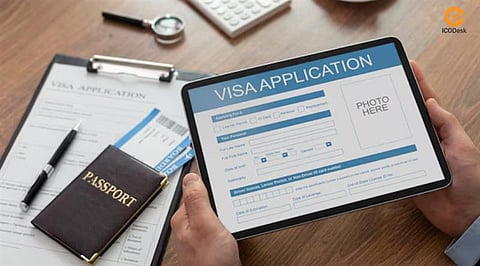

The Trump administration has rolled out a proposal to change how H-1B visas are awarded, coming just days after it introduced a $100,000 application fee. In a notice published by the Department of Homeland Security (DHS), the plan outlines a shift away from the current random lottery system toward one that gives preference to higher-paid and more experienced applicants whenever demand exceeds the annual cap of 85,000 visas.
Under the proposal, workers with higher salaries would have a greater chance of selection, while those earning less would face more formidable odds. DHS explained that the goal is to push employers to offer stronger wages and reduce the program’s use for lower-paying or less specialized jobs.
Under the new system, applicants would be placed into four wage categories. Those in the highest tier, earning $162,528 or more annually, would receive four entries in the selection pool. Workers in the lowest tier would receive one entry. Officials said this structure would improve the program’s ability to match skilled workers with specialized U.S. jobs.
The proposed changes mark a shift from the traditional lottery, which assigns all applicants an equal chance regardless of wage level. DHS estimates that total wages for H-1B workers would rise by $502 million in fiscal year 2026 and could increase by $2 billion annually by 2029. However, about 5,200 small businesses that rely on international workers may face significant labor shortages as a result.
The employers in the U.S. and foreign workers are likely to be affected by the new fee and wage-based system on a large scale. Salaries are higher in large companies, which will have a more successful possibility of receiving visas, and smaller businesses and startups can not find it as easily to attract qualified talent.
According to immigration attorneys, the changes could shift opportunities toward senior, higher-paid professionals. This would make it harder for recent graduates and entry-level workers to gain a foothold in the U.S. job market.
India and China, the top two sources of H-1B visa holders, may see the most significant impact. India accounted for 71% of approved beneficiaries in the last year, with China at 11.7%. Many Indian information technology firms, such as TCS, Infosys, and Wipro, depend heavily on the program. Analysts warn the $100,000 fee could also raise operational costs for these companies.
U.S. Citizenship and Immigration Services will open a 30-day public comment period on the proposal. If approved, the rule could take effect for the 2026 H-1B lottery cycle. Similar attempts to change the program under both the Trump and Biden administrations were either delayed or struck down in federal court.
Legal issues will be a concern, as the new lottery system, based on fees and wages, may not be well-received by employers and worker advocacy organizations. The proponents feel that the reforms will contribute to the wage protection of American employees. Critics, however, caution that the measures would increase the difficulty of competition by small businesses and restrict diversity in the U.S. workforce.